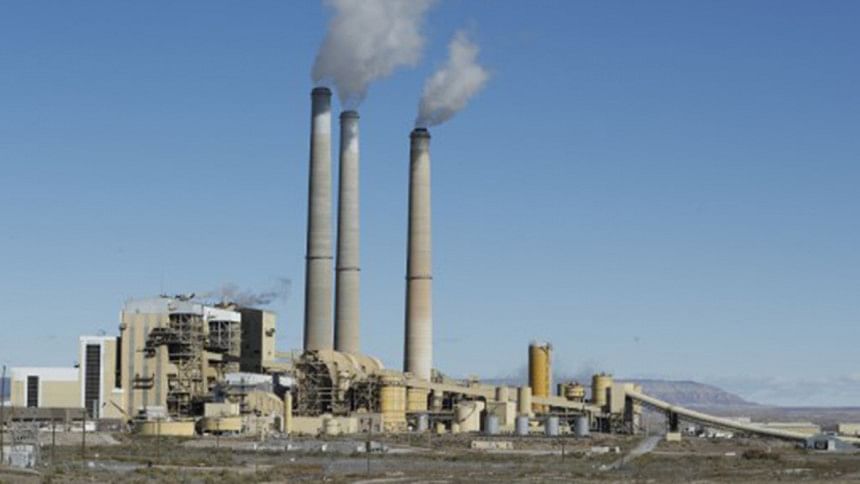Fossil fuel polluters from US to China far off climate targets: UN

The world's major fossil fuel producers are set to bust global environmental goals with excessive coal, oil and gas extraction in the next decade, the United Nations and research groups said on Wednesday in the latest warning over climate crisis.
The 10 nations in focus, including superpowers China and the United States, plan to produce fuels by 2030 at levels between 50-120% over Paris Agreement targets, the study showed.
Under that 2015 global pact, nations committed to a long-term goal of limiting the average temperature increase to within 1.5-2 degrees Celsius above pre-industrial levels.
But by 2030, the 10 countries' planned production would lead to 39 gigatonnes (Gt) of carbon dioxide emissions, 53% higher than what is needed to reduce temperature rises to 2C and 21 Gt, or 120%, more than is needed for 1.5C, the report said.
Other countries analysed included Russia, India, Australia, Indonesia, Canada, Germany, Norway and Britain.
"The world’s energy supply remains dominated by coal, oil and gas, driving emission levels that are inconsistent with climate goals," said United Nations Environment Programme (UNEP) executive director Inger Andersen.
As well as UNEP, the report was produced by the Stockholm Environment Institute, the International Institute for Sustainable Development, the Overseas Development Institute, and the CICERO Centre for International Climate and Environmental Research and Climate Analytics.
It created a new metric called "the fossil fuel production gap" highlighting the difference between rising production and the decline needed to restrict global warming.
The gap was largest for coal, with countries planning to produce 150% more in 2030 than would be consistent with limiting warming to 2C, and 280% more than would limit warming to 1.5C.
"The continued expansion of fossil fuel production - and the widening of the global production gap - is underpinned by a combination of ambitious national plans, government subsidies to producers, and other forms of public finance," the report said.
The report precedes UNEP's annual "emissions gap" report, due next week, which assesses whether countries’ emissions cut policies are enough.

 For all latest news, follow The Daily Star's Google News channel.
For all latest news, follow The Daily Star's Google News channel. 



Comments